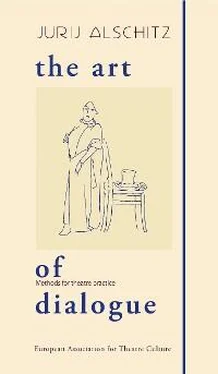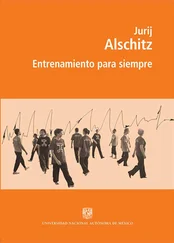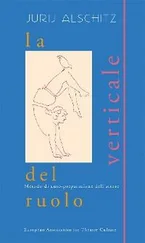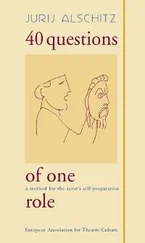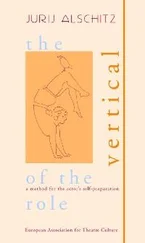Dialogue is – recognising yourself in another. That is what I discovered in Plato. To unconditionally trust another, as yourself. And yourself, as another. You have seen how the things around us begin to communicate with us, open up their essence to us, show their character, not when they act contrary to our intentions and plans but at the moment that they sense our trust. That is when they begin to reveal their secrets. Then, we understand – a dialogue is being created between us and them! As if the magic words ring out – “We be of one blood, thou and I!” Remember the Jungle Book by Joseph Rudyard Kipling. I remembered those magical words my whole life. The jungle is a difficult battle where each fights for their own survival, and when these words ring out, and the connection opens up, a dialogue begins. Masters know that the violin will never call out if the wood does not trust its creator, bread will not be made if the dough does not trust the baker. The exact same thing happens between us in a dialogue – if there is a mutual trust, then the hidden possibilities in us open up. This trust towards each other is what Plato’s dialogues are built on.
I probably haven’t told you everything that was revealed to me in my teacher Plato’s dialogues. Go to his school. Read his words yourself, speak to him, and I am sure that he will reveal many other secrets to you. You will be persuaded that his dialogues are not only contemporary in their content but are also the best possible school for us actors. Therefore, when you are beginning to work on any form of dialogue, and their exist many and they are very different, remember the great philosopher who first revealed the beauty of Dialogue; remember his main principles of the construction of dialogue which he discovered, and you will be convinced that they can help you to resolve your most difficult tasks.
And one further piece of advice – don’t forget that Dialogue arose in the heart of the young Greek democracy. Which means that Dialogue significantly helped to build free, democratic relations. It could be built on thorny competitiveness, hard battle, but anyway, it’s foundations were agreement between people. We be of one blood, thou and I! Never forget this. And try to start work on each dialogue from that perspective.
2Plato (1994), Complete Works [Sobranie socinenija], Anonymous Prolegomena, vol. 4, p. 367. Moscow.
3R. Müller: Stuttgart zur Zeit des Nationalsozialismus. Stuttgart, 1988. pp. 37
4Plato, Protagor. 1994, Complete Works [Sobranie socinenija], vol. 1. p. 418. Moscow.
5Plato, Pir., 1993 Complete Works [Sobranie socinenija], vol. 2. p. 98. Moscow.
6from Joseph and His Brothers by Thomas Mann, 1933, translated by H. T. Lowe-Porter, published by Secker & Warburg, pp. 148-150. Reprinted by permission of The Random House Group Ltd.
3. LABYRINTH OF QUESTIONS AND ANSWERS
Around ten or more years ago, at one of my seminars in Sweden, which was not on the theme of dialogue, I said to an actor, during a discussion about one of the pieces of work presented, that his scene was not a dialogue but a simple exchange of questions and answers. I did not mean to offend him. But as a person with a university education who appeared to have very seriously studied ancient Greek culture, he was shocked and upset – “dialogue in ancient culture has always been understood as the special art of holding a conversation, asking questions and answering them. That’s how the dialectical method came about,” he said. “One person asks a question and the second person answers him.” I both did and didn’t agree with him. But I didn’t object to what he said because it wasn’t the theme of the lesson, I didn’t want to make a digression, well, and generally it was already late in the day to start a serious conversation. But, coming back to the hotel after the session, I thought that it was essential to continue the discussion which we had begun about the ancient Greek understanding of dialogue as the art of questions and answers. When I got into bed, by chance, I turned my attention to the Bible lying in the draw of the small table next to the bed. I began to leaf through it. And there I found the first line of the very first dialogue in the world. And I was very pleased, because that dialogue took place a very long time ago, even before the dawn of ancient Greek culture with its dialectics, before ancient Greece even existed. In brief, I had found a reply. I took the Bible to the next session and read the actors this line:
God. “Where are you?”
There it is – the beginning. I like this a lot. In my view, it’s a very sharp, painfully wounding and beautiful opening line. As elegant and piercing as my favourite weapon – the rapier, which I learnt as a child. But in this particular situation, the essence of this line was not the important thing, nor its penetrating depth nor even my childhood memories, but rather the fact that this first line of dialogue was a question. “Yes, the dialogue begins with a question,” I agreed with my opponent from yesterday, the following morning. “But dialogue does not begin from every question. It must be a special question. What sort of question?” I invited the actors to think about this theme. The discussion became very noisy, literally right away, and I didn’t have time to write everything down. There were so many different and so many interesting points of view. Someone compared the question with a razor which “slices with its sharp blade – and undoes everything hidden and firmly sewed into the adversary’s subconscious”. Someone said that a question is light. “Like a bright sunbeam on your eyes, it should interrupt a sweet dream and say – Get up!” They confirmed that a question should be an instantaneous, shocking blow. Others considered that “it should go unnoticed and enter inside the adversary bit by bit, like a slow-acting and paralysing poison”. I was interested in listening to everything they were suggesting. Then we went over to an analysis of the question which I had found in the Bible, “Where are you?” and we decided that the one who asked it, knew that an endless series of other questions stood behind it – “Who are you?” “What are you doing?” “Where are you going?” “What are you looking for?” and so on. “So, the question can be an exploding bullet,” someone blurted out, “Its fragments live for a long time inside the person who was affected by them, and won’t give him a minute’s peace.” It was an interesting group and, in a Scandinavian way, was very poetically inclined towards Theatre. When the actors became a little clearer about what sort of special “questions” we were talking about, I closed our discussion and declared that it was time for a cigarette break. After the break, we began rehearsing scenes from Oscar Wilde’s novel The Picture of Dorian Gray, but that theme of the discussion had captivated the actors to such an extent that they continued with it during the rehearsal and finally decided to start the analysis of the famous questions in Oscar Wilde’s dialogue once more from the beginning. At the end of the seminar, to calm them down, I promised them that we would continue this theme again, at some point. But I never saw one of these actors again. That is just how it worked out.
And now, more than ten years later, as I am researching dialogue, I remembered that discussion. I found the notes from it and thought for a long time by myself about the Question and its role in Dialogue. Today, I no longer think that the question is always a “bomb”, a “bullet”, a “mine”, “poison” or a “razor”. Before, these definitions pleased me with their attack, their sharpness, but not any more; I don’t like them now. I agree that, when beginning an analysis of dialogue, the actor and director must find the question which breaks the calm, but not only with the aim of breaking and destroying. We need the powerful energy of a question, first and foremost, so that something will grow out of it in the future. The question is the seed – and something should grow out of it. That’s what we need.
Читать дальше
